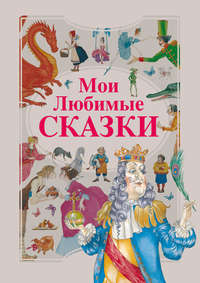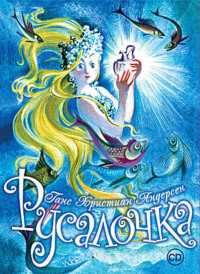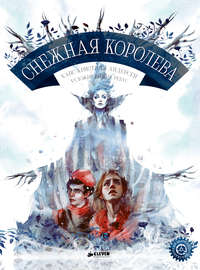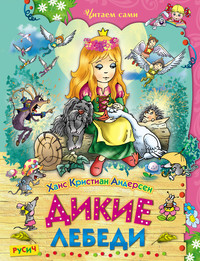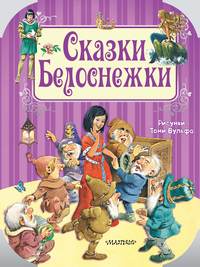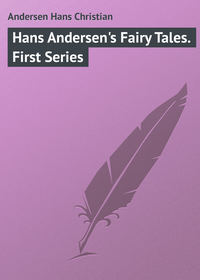 полная версия
полная версияWhat the Moon Saw: and Other Tales
"'These two qualities,' she said, 'place us ants on the highest step among all reasoning beings. Understanding is seen among us all in predominant measure, and I have the greatest share of understanding.' And so saying, she raised herself on her hind-legs, so that she was easily to be recognized. I could not be mistaken, and I ate her up. We were to go to the ants to learn wisdom – and I had got the queen!
"I now proceeded nearer to the before-mentioned lofty tree. It was an oak, and had a great trunk, and a far-spreading top, and was very old. I knew that a living being dwelt here, a Dryad as it is called, who is born with the tree, and dies with it. I had heard about this in the library; and now I saw an oak tree, and an oak girl. She uttered a piercing cry when she saw me so near. Like all females, she was very much afraid of mice; and she had more ground for fear than others, for I might have gnawed through the stem of the tree on which her life depended. I accosted the maiden in a friendly and honest way, and bade her take courage. And she took me up in her delicate hand; and when I had told her my reason for coming out into the wide world, she promised me that perhaps on that very evening I should have one of the two treasures of which I was still in quest. She told me that Phantasus, the genius of imagination, was her very good friend, that he was beautiful as the god of love, and that he rested many an hour under the leafy boughs of the tree, which then rustled more strongly than ever over the pair of them. He called her his dryad, she said, and the tree his tree, for the grand gnarled oak was just to his taste, with its root burrowing so deep in the earth, and the stem and crown rising so high out in the fresh air, and knowing the beating snow, and the sharp wind, and the warm sunshine as they deserve to be known. 'Yes,' the Dryad continued, 'the birds sing aloft there in the branches, and tell each other of strange countries they have visited; and on the only dead bough the stork has built a nest which is highly ornamental, and moreover, one gets to hear something of the land of the pyramids. All that is very pleasing to Phantasus; but it is not enough for him: I myself must talk to him, and tell him of life in the woods, and must revert to my childhood, when I was little, and the tree such a delicate thing that a stinging-nettle overshadowed it – and I have to tell everything, till now that the tree is great and strong. Sit you down under the green thyme, and pay attention; and when Phantasus comes, I shall find an opportunity to pinch his wings, and to pull out a little feather. Take the pen – no better is given to any poet – and it will be enough for you!'
"And when Phantasus came the feather was plucked, and I seized it," said the little Mouse. "I put it in water, and held it there till it grew soft. It was very hard to digest, but I nibbled it up at last. It is very easy to gnaw oneself into being a poet, though there are many things one must do. Now I had these two things, imagination and understanding, and through these I knew that the third was to be found in the library; for a great man has said and written that there are romances, whose sole and single use is that they relieve people of their superfluous tears, and that they are, in fact, a sort of sponges sucking up human emotion. I remembered a few of these old books which had always looked especially palatable, and were much thumbed and very greasy, having evidently absorbed a great deal of feeling into themselves.
"I betook myself back to the library, and, so to speak, devoured a whole novel – that is, the essence of it, the interior part, for I left the crust or binding. When I had digested this, and a second one in addition, I felt a stirring within me, and I ate a bit of a third romance, and now I was a poet. I said so to myself, and told the others also. I had headache, and chestache, and I can't tell what aches besides. I began thinking what kind of stories could be made to refer to a sausage-peg; and many pegs, and sticks, and staves, and splinters came into my mind – the ant queen must have had a particularly fine understanding. I remembered the man who took a white stick in his mouth, by which means he could render himself and the stick invisible; I thought of stick hobby-horses, of 'stock rhymes,' of 'breaking the staff' over an offender, and Heaven knows of how many phrases more concerning sticks, stocks, staves, and pegs. All my thoughts ran upon sticks, staves, and pegs; and when one is a poet (and I am a poet, for I have worked most terribly hard to become one) a person can make poetry on these subjects. I shall therefore be able to wait upon you every day with a poem or a history – and that's the soup I have to offer."
"Let us hear what the third has to say," was now the Mouse King's command.
"Peep! peep!" cried a small voice at the kitchen-door, and a little mouse – it was the fourth of the mice who had contended for the prize, the one whom they looked upon as dead – shot in like an arrow. She toppled the sausage-peg with the crape covering over in a moment. She had been running day and night, and had travelled on the railway, in the goods train, having watched her opportunity, and yet she had almost come too late. She pressed forward, looking very much rumpled, and she had lost her sausage-peg, but not her voice, for she at once took up the word, as if they had been waiting only for her, and wanted to hear none but her, and as if everything else in the world were of no consequence. She spoke at once, and spoke fully: she had appeared so suddenly, that no one found time to object to her speech or to her, while she was speaking. And let us hear what she said.
IV
What the fourth Mouse, who spoke before the third had spoken, had to tell"I betook myself immediately to the largest town," she said; "the name has escaped me – I have a bad memory for names. From the railway I was carried, with some confiscated goods, to the council house, and when I arrived there I ran into the dwelling of the gaoler. The gaoler was talking of his prisoners, and especially of one who had spoken unconsidered words. These words had given rise to others, and these latter had been written down and recorded.
"'The whole thing is soup on a sausage-peg,' said the gaoler; 'but the soup may cost him his neck.'
"Now, this gave me an interest in the prisoner," continued the Mouse, "and I watched my opportunity and slipped into his prison – for there's a mouse-hole to be found behind every locked door. The prisoner looked pale, and had a great beard, and bright sparkling eyes. The lamp flickered and smoked, but the walls were so accustomed to that, that they grew none the blacker for it. The prisoner scratched pictures and verses in white upon the black ground, but I did not read them. I think he found it tedious, and I was a welcome guest. He lured me with bread crumbs, with whistling, and with friendly words: he was glad to see me, and gradually I got to trust him, and we became good friends. He let me run upon his hand, his arm, and into his sleeve; he let me creep about in his beard, and called me his little friend. I really got to love him, for these things are reciprocal. I forgot my mission in the wide world, forgot my sausage-peg: that I had placed in a crack in the floor – it's lying there still. I wished to stay where I was, for if I went away, the poor prisoner would have no one at all, and that's having too little, in this world. I stayed, but he did not stay. He spoke to me very mournfully the last time, gave me twice as much bread and cheese as usual, and kissed his hand to me; then he went away, and never came back. I don't know his history.
"'Soup on a sausage-peg!' said the gaoler, to whom I now went; but I should not have trusted him. He took me in his hand, certainly, but he popped me into a cage, a treadmill. That's a horrible engine, in which you go round and round without getting any farther; and people laugh at you into the bargain.
"The gaoler's granddaughter was a charming little thing, with a mass of curly hair that shone like gold, and such merry eyes, and such a smiling mouth!
"'You poor little mouse,' she said, as she peeped into my ugly cage; and she drew out the iron rod, and forth I jumped, to the window board, and from thence to the roof spout. Free! free! I thought only of that, and not of the goal of my journey.
"It was dark, and night was coming on. I took up my quarters in an old tower, where dwelt a watchman and an owl. That is a creature like a cat, who has the great failing that she eats mice. But one may be mistaken, and so was I, for this was a very respectable, well-educated old owl: she knew more than the watchman, and as much as I. The young owls were always making a racket; but 'go and make soup on a sausage peg' were the hardest words she could prevail on herself to utter, she was so fondly attached to her family. Her conduct inspired me with so much confidence, that from the crack in which I was crouching I called out 'peep!' to her. This confidence of mine pleased her hugely, and she assured me I should be under her protection, and that no creature should be allowed to do me wrong; she would reserve me for herself, for the winter, when there would be short commons.
"She was in every respect a clever woman, and explained to me how the watchman could only 'whoop' with the horn that hung at his side, adding, 'He is terribly conceited about it, and imagines he's an owl in the tower. Wants to do great things, but is very small – soup on a sausage-peg!' I begged the owl to give me the recipe for this soup, and then she explained the matter to me.
"'Soup on a sausage-peg,' she said, 'was only a human proverb, and was to be understood thus: Each thinks his own way the best, but the whole signifies nothing.'
"'Nothing!'" I exclaimed. "I was quite struck. Truth is not always agreeable, but truth is above everything; and that's what the old owl said. I now thought about it, and readily perceived that if I brought what was above everything I brought something far beyond soup on a sausage-peg. So I hastened away, that I might get home in time, and bring the highest and best, that is above everything – namely, the truth. The mice are an enlightened people, and the king is above them all. He is capable of making me queen, for the sake of truth."
"Your truth is a falsehood," said the Mouse who had not yet spoken. "I can prepare the soup, and I mean to prepare it."
V
How it was prepared"I did not travel," the third Mouse said. "I remained in my country – that's the right thing to do. There's no necessity for travelling; one can get everything as good here. I stayed at home. I've not learnt what I know from supernatural beings, or gobbled it up, or held converse with owls. I have what I know through my own reflections. Will you make haste and put that kettle upon the fire? So – now water must be poured in – quite full – up to the brim! – So – now more fuel – make up the fire, that the water may boil – it must boil over and over! – So – I now throw the peg in. Will the king now be pleased to dip his tail in the boiling water, and to stir it round with the said tail? The longer the king stirs it, the more powerful will the soup become. It costs nothing at all – no further materials are necessary, only stir it round!"
"Cannot any one else do that?" asked the Mouse King.
"No;" replied the mouse. "The power is contained only in the tail of the Mouse King."
And the water boiled and bubbled, and the Mouse King stood close beside the kettle – there was almost danger in it – and he put forth his tail, as the mice do in the dairy, when they skim the cream from a pan of milk, afterwards licking their creamy tails; but his tail only penetrated into the hot steam, and then he sprang hastily down from the hearth.
"Of course – certainly you are my queen," he said. "We'll adjourn the soup question till our golden wedding in fifty years' time, so that the poor of my subjects, who will then be fed, may have something to which they can look forward with pleasure for a long time."
And soon the wedding was held. But many of the mice said, as they were returning home, that it could not be really called soup on a sausage-peg, but rather soup on a mouse's tail. They said that some of the stories had been very cleverly told; but the whole thing might have been different. "I should have told it so – and so – and so!"
Thus said the critics, who are always wise – after the fact.
And this story went out into the wide world, everywhere; and opinions varied concerning it, but the story remained as it was. And that's the best in great things and in small, so also with regard to soup on a sausage-peg – not to expect any thanks for it.
THE STONE OF THE WISE MEN
Far away in the land of India, far away towards the East, at the end of the world, stood the Tree of the Sun, a noble tree, such as we have never seen, and shall probably never see. The crown stretched out several miles around: it was really an entire wood; each of its smallest branches formed, in its turn, a whole tree. Palms, beech trees, pines, plane trees, and various other kinds grew here, which are found scattered in all other parts of the world: they shot out like small branches from the great boughs, and these large boughs with their windings and knots formed, as it were, valleys and hills, clothed with velvety green, and covered with flowers. Everything was like a wide, blooming meadow, or like the most charming garden. Here the birds from all quarters of the world assembled together – birds from the primeval forests of America, the rose gardens of Damascus, from the deserts of Africa, in which the elephant and the lion boast of being the only rulers. The Polar birds came flying hither, and of course the stork and the swallow were not absent; but the birds were not the only living beings: the stag, the squirrel, the antelope, and a hundred other beautiful and light-footed animals were here at home. The crown of the tree was a widespread fragrant garden, and in the midst of it, where the great boughs raised themselves into a green hill, there stood a castle of crystal, with a view towards every quarter of heaven. Each tower was reared in the form of a lily. Through the stem one could ascend, for within it was a winding-stair; one could step out upon the leaves as upon balconies; and up in the calyx of the flower itself was the most beautiful, sparkling round hall, above which no other roof rose but the blue firmament with sun and stars.
Just as much splendour, though in another way, appeared below, in the wide halls of the castle. Here, on the walls, the whole world around was reflected. One saw everything that was done, so that there was no necessity of reading any papers, and indeed papers were not obtainable there. Everything was to be seen in living pictures, if one only wished to see it; for too much is still too much even for the wisest man; and this man dwelt here. His name is very difficult – you will not be able to pronounce it; therefore it may remain unmentioned. He knew everything that a man on earth can know, or can get to know; every invention which had already been or which was yet to be made was known to him; but nothing more, for everything in the world has its limits. The wise King Solomon was only half as wise as he, and yet he was very wise, and governed the powers of nature, and held sway over potent spirits: yes, Death itself was obliged to give him every morning a list of those who were to die during the day. But King Solomon himself was obliged to die too; and this thought it was which often in the deepest manner employed the inquirer, the mighty lord in the castle on the Tree of the Sun. He also, however high he might tower above men in wisdom, must die one day. He knew that, and his children also must fade away like the leaves of the forest, and become dust. He saw the human race fade away like the leaves on the tree; saw new men come to fill their places; but the leaves that fell off never sprouted forth again – they fell to dust, or were transformed into other parts of plants. "What happens to man?" the wise man asked himself, "when the angel of death touches him? What may death be? The body is dissolved – and the soul. Yes, what is the soul? whither doth it go? To eternal life, says the comforting voice of religion; but what is the transition? where does one live, and how? Above, in heaven, says the pious man, thither we go. Thither?" repeated the wise man, and fixed his eyes upon the moon and the stars; "up yonder?" But he saw, from the earthly ball, that above and below were alike changing their position, according as one stood here or there on the rolling globe; and even if he mounted as high as the loftiest mountains of earth rear their heads, to the air which we below call clear and transparent – the pure heaven – a black darkness spread abroad like a cloth, and the sun had a coppery glow, and sent forth no rays, and our earth lay wrapped in an orange-coloured mist. How narrow were the limits of the corporeal eye, and how little the eye of the soul could see! – how little did even the wisest know of that which is the most important to us all!
In the most secret chamber of the castle lay the greatest treasure of the earth: the Book of Truth. Leaf for leaf, the wise man read it through: every man may read in this book, but only by fragments. To many an eye the characters seem to tremble, so that the words cannot be put together; on certain pages the writing often seems so pale, so blurred, that only a blank leaf appears. The wiser a man becomes, the more he will read; and the wisest read most. He knew how to unite the sunlight and the moonlight with the light of reason and of hidden powers; and through this stronger light many things came clearly before him from the page. But in the division of the book whose title is "Life after Death" not even one point was to be distinctly seen. That pained him. Should he not be able here upon earth to obtain a light by which everything should become clear to him that stood written in the Book of Truth?
Like the wise King Solomon, he understood the language of the animals, and could interpret their talk and their songs. But that made him none the wiser. He found out the forces of plants and metals – the forces to be used for the cure of diseases, for delaying death – but none that could destroy death. In all created things that were within his reach he sought the light that should shine upon the certainty of an eternal life; but he found it not. The Book of Truth lay before him with leaves that appeared blank. Christianity showed itself to him in the Bible with words of promise of an eternal life; but he wanted to read it in his book; but here he saw nothing written on the subject.
He had five children – four sons, educated as well as the children of the wisest father could be, and a daughter, fair, mild, and clever, but blind; yet this appeared no deprivation to her – her father and brothers were outward eyes to her, and the vividness of her feelings saw for her.
Never had the sons gone farther from the castle than the branches of the tree extended, nor had the sister strayed from home. They were happy children in the land of childhood – in the beautiful fragrant Tree of the Sun. Like all children, they were very glad when any history was related to them; and the father told them many things that other children would not have understood; but these were just as clever as most grown-up people are among us. He explained to them what they saw in the pictures of life on the castle walls – the doings of men and the march of events in all the lands of the earth; and often the sons expressed the wish that they could be present at all the great deeds and take part in them; and their father then told them that out in the world it was difficult and toilsome – that the world was not quite what it appeared to them as they looked forth upon it from their beauteous home. He spoke to them of the true, the beautiful, and the good, and told them that these three held together in the world, and that under the pressure they had to endure they became hardened into a precious stone, clearer than the water of the diamond – a jewel whose splendour had value with God, whose brightness outshone everything, and which was the so-called "Stone of the Wise." He told them how men could attain by investigation to the knowledge of the existence of God, and that through men themselves one could attain to the certainty that such a jewel as the "Stone of the Wise" existed. This narration would have exceeded the perception of other children, but these children understood it, and at length other children, too, will learn to comprehend its meaning.
They questioned their father concerning the true, the beautiful, and the good; and he explained it to them, told them many things, and told them also that God, when He made man out of the dust of the earth, gave five kisses to His work – fiery kisses, heart kisses – which we now call the five senses. Through these the true, the beautiful, and the good is seen, perceived, and understood; through these it is valued, protected, and furthered. Five senses have been given corporeally and mentally, inwardly and outwardly, to body and soul.
The children reflected deeply upon these things; they meditated upon them by day and by night. Then the eldest of the brothers dreamt a splendid dream. Strangely enough, the second brother had the same dream, and the third, and the fourth brother likewise; all of them dreamt exactly the same thing – namely, that each went out into the world and found the "Stone of the Wise," which gleamed like a beaming light on his forehead when, in the morning dawn, he rode back on his swift horse over the velvety green meadows of his home into the castle of his father; and the jewel threw such a heavenly light and radiance upon the leaves of the book, that everything was illuminated that stood written concerning the life beyond the grave. But the sister dreamt nothing about going out into the wide world. It never entered her mind. Her world was her father's house.
"I shall ride forth into the wide world," said the eldest brother. "I must try what life is like there, and go to and fro among men. I will practise only the good and the true; with these I will protect the beautiful. Much shall change for the better when I am there." Now his thoughts were bold and great, as our thoughts generally are at home, before we have gone forth into the world and have encountered wind and rain, and thorns and thistles.
In him and in all his brothers the five senses were highly developed, inwardly and outwardly; but each of them had one sense which in keenness and development surpassed the other four. In the case of the eldest this pre-eminent sense was Sight. This was to do him especial service. He said he had eyes for all time, eyes for all nations, eyes that could look into the depths of the earth, where the treasures lie hidden, and deep into the hearts of men, as though nothing but a pane of glass were placed before them: he could read more than we can see on the cheek that blushes or grows pale, in the eye that droops or smiles. Stags and antelopes escorted him to the boundary of his home towards the west, and there the wild swans received him and flew north-west. He followed them. And now he had gone far out into the world – far from the land of his father, that extended eastward to the end of the earth.
But how he opened his eyes in astonishment! Many things were here to be seen; and many things appear very different when a man beholds them with his own eyes, or when he merely sees them in a picture, as the son had done in his father's house, however faithful the picture way be. At the outset he nearly lost his eyes in astonishment at all the rubbish and all the masquerading stuff put forward to represent the beautiful; but he did not lose them, and soon found full employment for them. He wished to go thoroughly and honestly to work in the understanding of the beautiful, the true, and the good. But how were these represented in the world? He saw that often the garland that belonged to the beautiful was given to the hideous; that the good was often passed by without notice, while mediocrity was applauded when it should have been hissed off. People looked to the dress, and not to the wearer; asked for a name, and not for desert; and went more by reputation than by service. It was the same thing everywhere.


